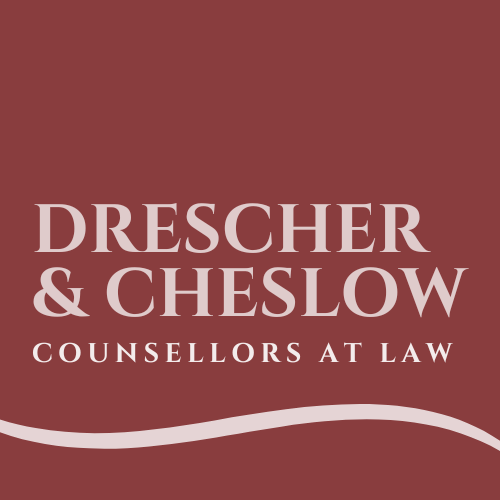Digital technology continues to make our daily lives more efficient. Everyday smartphones, tablets, and other…
Trusts and Trustees Monmouth County, NJ
Trusts and Trustees Monmouth County
What is a Trust? Trusts come in nearly endless forms, including those which are made effective while a person is living, or inter vivos, and those which are to be established after death, or post mortem. Some trusts are revocable, meaning that they may be changed or entirely eliminated by their creator, while others are irrevocable, such that they may not be altered or cancelled. Trusts may be stand-alone documents or may be testamentary, that is, included within a person’s Will. Trusts may also be creatures of courts, established by judicial order. A trust may provide certain mandates, such as requiring investments be made or retained and that specified payouts or distributions be made, or may be discretionary in one or more facets, including but not limited to choice of investments and distributions.
Trusts are legal arrangements to carry out specific or general directions and that allow one person or entity to manage assets for the benefit of others. A trust must have a creator, or Settlor, sometimes called a Grantor, a Trustor or a Donor. A trust must also have a trustee, or someone or some thing to hold legal title to property. A trust will not fail for want of a trustee. In the absence of a trustee or vacancy in such position, a trustee or a successor trustee will be appointed, whether by a designation in the trust instrument, by consensus of the beneficiaries, or by a third party (a judge, a trust protector or perhaps some other party). A trust must have property, which can be real estate or personal property, tangible or intangible. Trust property will include principal, or corpus, which is comprised of the assets coming into the trust, whether at the outset or at a later time while the trust is being administered, as well as accretion to the value of such assets and changes in their identity. Trust property will also include income earned upon trust principal, typically represented by interest, dividends and rents and in certain situations fees received by the trustee resulting from the use of such assets by others.
A trust must also have beneficiaries, or distributees, which can be persons or entities entitled to receive income, principal or both, including the right to receive such amounts over fixed or measurable periods of time, such as for a stated term of years or over the lifetime of the recipient, and the right to receive the assets remaining in the trust upon termination. Beneficiaries or distributees may be classified as current or income beneficiaries on the one hand and future or remainder beneficiaries on the other.
The role of the Trustee. The duties of a trustee vary with the purposes for which a given trust is established and with the directions and discretions, if any, provided within the trust itself. The trustee typically, though by no means at all times, manages trust assets and distributes them in accordance with the directions of the Settlor. The trustee must bear in mind, however, the overriding concern for protecting and preserving trust assets, even absent instructions from the Settlor, if the failure to act would be detrimental to the Settlor’s intent and purpose.
Management of a trust is a significant responsibility. In order to fulfill this obligation, the trustee should, as a general rule, possess good common sense and financial or business acumen or, short of that, an understanding of the need to retain competent financial and legal advisors to provide the requisite expertise. Trustees, in carrying out their duties, are governed by the provisions contained in the trust documents and by fundamental legal principles. These usually require that the trustee act reasonably, prudently and in good faith. A trustee, in exercising trust powers and authorities, must do so rationally and equitably, considering the needs of both income and principal, current and remainder beneficiaries, in a manner in which a person of ordinary prudence, diligence, discretion and judgment would act. Perfection is not required but care and reason are. By way of example, trustees are not permitted to speculate with trust property, but in the investment of trust assets are required to follow sound diversification principles (i.e. not to put all investment eggs into a single asset basket). Protection of income and principal as a reasonably prudent person would do is what is required.
Trustees may not personally benefit from trust assets or investments. They owe a duty of loyalty both to the Settlor, or creator of the trust, and to the beneficiaries and must avoid any situation which could include conflict of interest – for example, lending themselves trust funds, buying assets from trusts, especially, but not necessarily exclusively, for less than fair market value, or otherwise “doing business” with the trust they are charged with administering. At a minimum, any transaction in which the trustee might have a personal interest must be fully and transparently disclosed to the beneficiaries.
Trustees have a duty of impartiality; that is, absent an express direction form the Settlor, they cannot favor one class or group of beneficiaries over another, for example, income beneficiaries over principal beneficiaries or vice versa. Trustees must act fairly and equitably in making decisions about investments, distributions and payment of expenses, as well as about any other matters involving discretion. As a practical matter, a trustee should consider the needs and interests of all distributees when acting upon directives in trust documents and when investing and distributing trust assets. It should be noted that the obligation to be impartial includes the responsibility to credit receipts and to charge disbursements to income or to principal in an equitable manner both for allocation of such receipts and disbursements among the beneficiaries and for purposes of income tax reporting (more below) in order to avoid unfairly burdening or favoring one group of beneficiaries to the benefit or detriment of another.
A trustee should keep the beneficiaries informed about the status of the trust and its assets and liabilities. To accomplish this sharing of information a trustee should periodically provide the distributees with information that is pertinent to their interests, which may include formal or informal accountings.
A trustee is authorized and indeed encouraged to seek advice from competent and experienced professionals including financial advisors, certified financial planners, attorneys and accountants in the areas of trust administration and asset investment. Each year while a trust is in existence and to the extent required by law (generally, based upon the amount of gross income earned by a trust during a given calendar year) a trustee will be obligated to arrange for the preparation and filing of state and Federal income tax returns to reflect trust income, expense and distribution. As a part of this responsibility, a trustee will provide each distributee with scheduled to reflect the portion of trust income and deduction that may be attributable to such recipient.
At various intervals and upon termination of a trust, a trustee will be required to provide the beneficiaries with an accounting, whether informal (usually) or in a formal court proceeding (seldom) of the administration of the trust during the measuring period. Upon approval of the accounting and receipt from the beneficiaries of signed releases from liability, trust assets, less any appropriate reserve for final tax return filing and final expenses, are to be distributed to the beneficiaries.
Compensation of trustees. Under New Jersey law, trustees are entitled, although not required, to receive compensation in the form of commissions on both income and principal. This compensation is in addition to reimbursement for ordinary and necessary expenses incurred in trust administration. Annually, a trustee is entitled to receive a commission equivalent to 6% of trust income at to a fractional percentage of trust principal (.005 of the first $400,000 of assets and .003 of assets in excess of $400,000). Where there are multiple trustees there is a fractional adjustment to the principal commission. In addition to the annual commission, upon termination of a trust a trustee is entitled to a fee, which is determined with reference to the size of the trust and the years of trust administration, in part to reflect prior annual commission payments.
Summary. While the position of a trustee is to be taken seriously, it can be handled properly with prudence, reason and common sense, including knowing what one does not know or lacks expertise in, so that counsel and advice from competent professionals can be obtained and relied upon.



